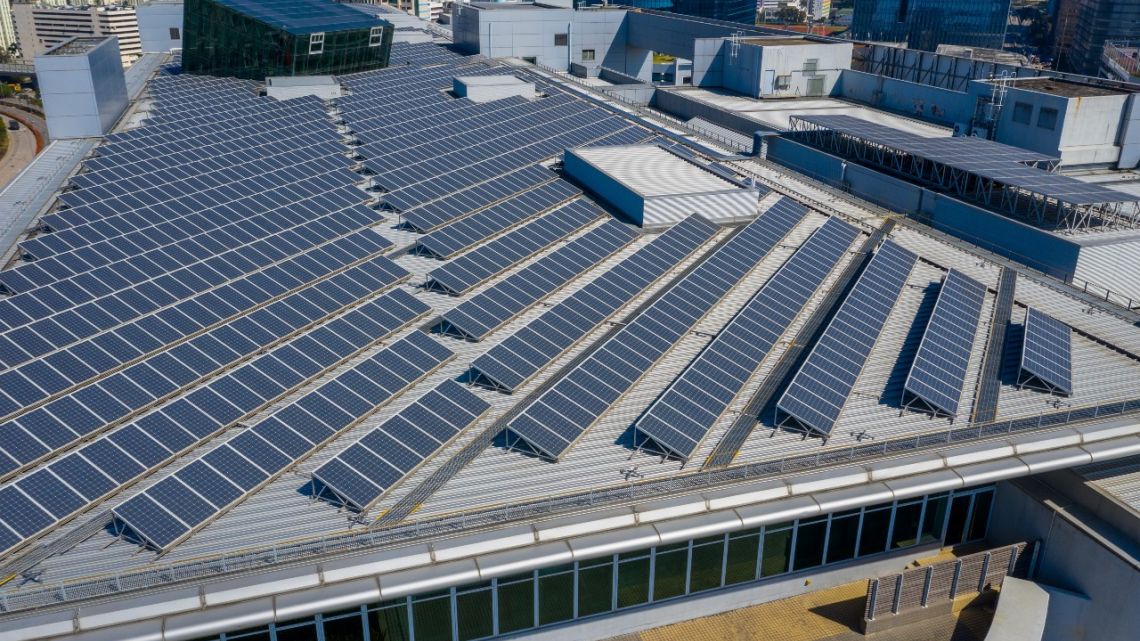Segen partnered AMP last year to offer more businesses and organisations solar energy. Image: AMP Clean Energy.
Residential and commercial rooftop solar PV system distributor Segen announced it was to be acquired by Labora Holdings Limited in the autumn of last year, with the transaction set to offer Segen new scope and scale.
Solar Power Portal caught up with Segen's sales and marketing director Liz MacFarlane late last year to discuss the bigger buying power enabled by the acquisition, how Segen's been managing the supply chain challenges seen across the PV sector and the increased demand for energy storage and higher efficiency modules.
How has Segen been managing the supply chain challenges felt across the solar industry?
Segen's in a good position because we've got long standing relationships; we've been dealing with many of our manufacturers for over 10 years. We deal with a broad range of the leading manufacturers, which means that we can get an early warning of problems ahead, and we can plan, and we have foresight into issues with availability and pricing changes. So we've got a strong supply chain team who are able to have dialogue early on with manufacturers, and that's taken up a lot of time and planning to make sure that we're in the best possible position for our customers, so that they can deliver the projects that are in the pipeline.
What has the acquisition by Labora meant for Segen?
It opens up no end of opportunities for us and puts us in a really great position in the market, but also we've had to adapt to the scale of the market at the moment. The market is in such a good position and really thriving, and we've seen huge growth. So we've really had to grow our business, invest in resource, increase our staff levels, and so recruitment has been a huge part of Segen recently, and taking up a lot of time, and then just managing the hurdles in the supply chain.
It's very much business as usual. So the management team remains the same, and we've got the same plans for growth that we had before. But now we've probably got a bigger buying power, wider buying power, and so it can only be a benefit.
What level of demand are you seeing?
Demand has never been stronger. Our residential businesses is twice as large as it was this time last year, and commercially even more so. Demand is huge.
We're also seeing a big influx of new entrants to the market, whether or not that's because we've now got a new business team, I don't know, but we're focusing more on new business. Returning customers and new customers has increased by over 60%, so that's really great to see because it puts us in the position where we're more likely to achieve that 40GW target because we're actually seeing people coming into the market to help with deployment of PV.
Are there any particular products that are proving more popular?
Yes, it's great to see module efficiencies continuing to improve, and it just means that more roof space is suitable for PV because you can fit even a much smaller roof with PV now because the efficiencies have gone up so we're getting much more output, and that's making commercial schemes much more viable as well. You can get much more onto a commercial rooftop. So I'd say the higher efficiency modules are in high demand.
Energy storage is continuing, if I had to hazard a guess I'd say maybe 70% of the residential systems that we sell are sold with energy storage. And I really see energy storage and electric vehicle charging as an enabler for PV; it's really driving the market.
What are Segen's plans for the next year?
We've got a real focus on commercial PV. Segen's bread and butter market has always been residential PV and of course we'll always have a focus on that.
We've segmented our sales teams, so we've got one [side of] the sales teams that focuses on residential including new build, we've got a new business team, we've got a commercial team and we've got a whole green business team. So it's a bit more of a split of the sales team to more closely align with the market.
It means we can specialise. So when you speak to someone in Segen, you're not speaking to someone who's just got general knowledge of PV or energy storage or EV, they specialise in the segment within which they're working.

